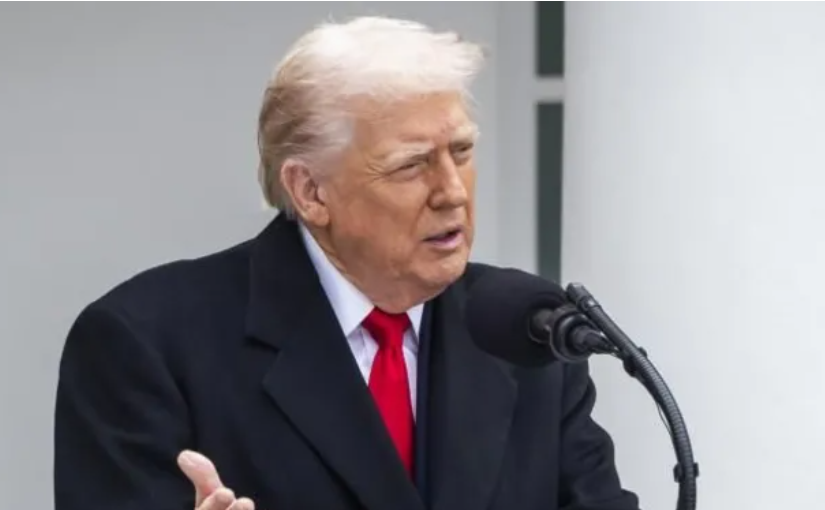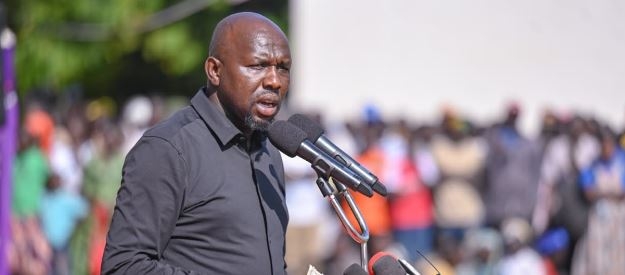
A Georgia prosecutor has dropped the 2020 election-interference case against President Donald Trump.
Pete Skandalakis filed a motion to dismiss the case that initially accused Trump and others of plotting to overturn the 2020 presidential election results in the state in his favour of Joe Biden.
The state charges were the last remaining criminal legal case against the US president stemming from the 2020 election. It was first brought by district attorney Fani Willis, but she was removed from the case by the state's supreme court after a personal scandal.
"A fair and impartial prosecutor has put an end to this lawfare," an attorney for Trump said in response to the dismissal.
Willis was removed from the case after the court determined a romantic relationship with a special prosecutor assigned to the case created an "appearance of impropriety."
Skandalakis, executive director of the nonpartisan agency Prosecuting Attorneys' Council of Georgia, appointed himself to the case after Willis' disqualification and when other state prosecutors declined to take the case.
In Wednesday's motion to a Fulton County judge, Skandalakis said he was discontinuing the case "to serve the interests of justice and promote judicial finality."
"As a former elected official who ran as both a Democrat and a Republican and now is the Executive Director of a non-partisan agency, this decision is not guided by a desire to advance an agenda but is based on my beliefs and understanding of the law," Skandalakis added.
Willis began investigating the case in February 2021 after The Washington Post published a recording of Trump speaking with the state's Republican Secretary of State Brad Raffensperger. "I just want to find 11,780 votes," Trump is heard saying in the 2 January, 2021, call. That was margin by which he lost the state to Joe Biden.
Willis filed an indictment in August 2023 alleging that Trump conspired with 18 other defendants to interfere in the election result. The charges included racketeering and other state offences.
The group "refused to accept that Trump lost, and they knowingly and willfully joined a conspiracy to unlawfully change the outcome of the election in favor of Trump".
Four co-defendants took plea deals with prosecutors that resulted mostly in fines, suspended sentences and community service, including attorneys Sidney Powell, Kenneth Cheseboro, and Jenna Ellis.
Wednesday's dismissal affects the remaining co-defendants, including former New York mayor and Trump's former attorney Rudy Giuliani and Mark Meadows, chief of staff during Trump's first presidency.
Steve Sadow, President Trump's lead attorney in the case, praised the decision to drop the case.
"The political persecution of President Trump by disqualified DA Fani Willis is finally over," he said. "This case should never have been brought."
The Georgia election interference case was once considered the most threatening of Trump's four criminal indictments, because he could not pardon himself from state-level charges if he returned to office. The US Supreme Court granted a broad immunity to Trump against federal prosecution for what it described as official acts, but that ruling did not cover state-level cases.
Prosecutors brought Trump to the Fulton County Jail, where they took his mugshot. (The president's supporters embraced the image, later using on campaign merchandise.)
Yet legal experts who closely followed the case were not surprised by its dismissal. The sprawling racketeering case suffered a death by a thousand cuts - a judge tossed out several of the charges in 2024, and Willis was disqualified a few months later.
Willis' removal raised doubts about whether a replacement would take up such a complicated prosecution. Trump's election essentially put it on ice until his term ends in 2029.
"It was incredibly unlikely it was going to go forward anyway, because the amount of financial resources and man hours necessary to take on this case didn't seem to be within the scope of what Peter Skandalakis had," said Anthony Michael Kries, a professor at the Georgia State College of Law.
However, Mr Kries was surprised by some of Mr Skandalakis' reasoning for dropping the case.
"I think the report itself to me is a little more surprising because it seems to give the president and some of his allies a lot of benefit of the doubt, given what the evidence brought forth looked like," he said.
















